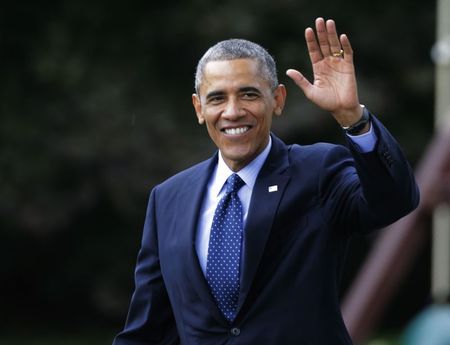By Daniel Trotta
HAVANA (Reuters) - Cuba has received no indication the Obama administration might change U.S. policy toward Cuba despite increasing support within the United States for closer ties, a top Cuban official said on Wednesday.
"We don't have those indications (of any policy change)," Josefina Vidal, chief of the Cuban foreign ministry's U.S. division, told reporters in Havana after attending a forum discussing the U.S. embargo.
The United States has maintained a comprehensive economic embargo against the communist-led island since 1962, a Cold War policy that has been strengthened through the years even after the fall of the Soviet Union in 1991.
Proponents of the current U.S. policy point to Cuba's one-party political system, repression of political opponents and a command economy that limits economic freedoms as reasons to maintain the embargo.
Vidal said there was a growing number of public opinion polls supporting a policy change in the United States.
Since leaving office in 2013, former Secretary of State Hillary Clinton revealed she recommended that President Barack Obama change U.S. policy toward Cuba, saying it was ineffective and holding back the U.S. agenda in the rest of Latin America.
Obama, immersed in a number of foreign policy crises elsewhere in the world and with midterm elections coming in November, has given little public indication he plans to review Cuba policy.
The Obama administration maintains that same stance in private, Vidal said.
"We always approach these topics .... There is no response," Vidal said.
While the two countries lack diplomatic relations, they maintain communications through each other's interests sections in Washington and Havana. Officials from both countries engage on a variety of issues and Vidal has met with Roberta Jacobson, the U.S. State Department head of Western Hemisphere affairs.
In many of these forums Cuba raises opposition to the embargo and other economic sanctions such as those imposed by virtue of the U.S. keeping Cuba on a list of state sponsors of terrorism along with Iran, Syria and Sudan.
"The philosophy of punishing Cuba remains in effect," Vidal said.
The United Nations has condemned the embargo for 22 straight years in lopsided votes, and the next vote is set for Oct. 28.
U.S. policy toward Cuba has long appeared to be influenced by domestic politics in Florida, where Cuban exiles have opposed any conciliation with former President Fidel Castro or current President Raul Castro, who took over for his brother in 2008.
But a Florida International University poll released in June found 52 percent of Cuban-Americans in Miami-Dade County oppose continuing the embargo and 68 percent favor diplomatic relations with Cuba.
An Atlantic Council poll released in February found 56 percent of Americans and 63 percent of Floridians favor normalizing relations.

One test will come in the November election for Florida governor. Democratic challenger Charlie Crist is campaigning on a platform that includes support for normalizing relations, while incumbent Governor Rick Scott supports current policy.
(Reporting by Daniel Trotta; Editing by Steve Orlofsky)
